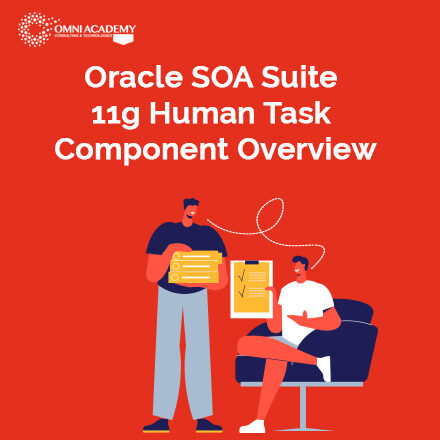Advanced SEO Training Course – with SEO Tools
Search Engine Optimization – with SEO Tools & Tips
In this Advanced SEO Training Course students will learn how to hit #1 on Google, best SEO course for 2018 to enhance Digital Marketing capabilities of individual and organizations. As a Digital marketing strategy, SEO considers how search engines work, what people search for, the actual search terms or keywords typed into search engines and which search engines are preferred by their targeted audience. Optimizing a website may involve editing its content, HTML and associated coding to both increase its relevance to specific keywords and to remove barriers to the indexing activities of search engines. Promoting a site to increase the number of backlinks, or inbound links, is another SEO tactic. In modern Digital Marketing or products and services promotion even using Social Marketing SEO has a critical role to bring customers to your eCommerce website. (Visit page bottom for SEO free tools & Tips)
What Is Search Engine Optimization – SEO
Search engine optimization (SEO) is the process of affecting the visibility of a website or a web page in a search engine’s unpaid results – often referred to as “natural,” “organic,” or “earned” results. In general, the earlier (or higher ranked on the search results page), and more frequently a site appears in the search results list, the more visitors it will receive from the search engine’s users. SEO may target different kinds of search, including image search, local search, video search, academic search, news search and industry-specific vertical search engines.
Quick Learning – SEO Introduction
The Complete SEO Course
Module 1: Understanding Modern Search Engines & SEO Importance
-
How Search Engines Work Today (Google, Bing, AI-Powered Engines)
-
Crawling, Indexing & Ranking
-
Relevance, Context & Semantic Search
-
Local SEO Ranking Factors
-
-
Why SEO Still Matters in 2025
-
The Power & Limitations of SEO
-
Real-World Case Studies (Success & Failure Stories)
-
Google’s Quality Guidelines & Bing’s Webmaster Tools
-
Role of AI in Search (e.g., SGE – Search Generative Experience)
-
Module 2: Planning & Strategy for SEO Campaigns
-
Setting Measurable SEO Goals & KPIs
-
Understanding Visitor Intent & Search Behavior
-
Competitor Benchmarking (Tools: SEMrush, Ahrefs)
-
Advanced Keyword Research (Cluster, Intent, AI-based Tools)
-
UX + SEO Integration: Site Architecture, Mobile UX, and Page Experience
-
Content Planning & Strategy
-
Role of Paid Search (PPC) in Supporting Organic SEO
Module 3: Technical SEO & SEO-Friendly Development
-
On-Page Optimization Best Practices
-
URL Structure, Metadata, Headings
-
Indexable Content & Internal Link Structure
-
HTML vs XML Sitemaps
-
Canonical Tags, Redirects, and Managing Duplicate Content
-
“nofollow” Links and Crawl Budget Optimization
-
Core Web Vitals & Mobile-First Indexing
-
Tools: Screaming Frog, Google PageSpeed Insights
Module 4: Off-Page SEO, Link Building & Social Signals
-
Authority Building through Link Signals
-
Effective Link-Building Strategies (2024 Edition)
-
AI Tools for Backlink Research (e.g., Surfer, Link Whisper)
-
Social Media Signals and Their Real Impact
-
The Fall of Google+ and Rise of New Social SEO
-
Digital PR, Influencer SEO, and Outreach Campaigns
-
Toxic Link Management & Disavow File Creation
Module 5: SEO Tools,
-
Google Search Console & GA4
-
Bing Webmaster Tools
-
Moz, SEMrush, Ahrefs, Screaming Frog
-
Using AI for SEO (ChatGPT, Jasper, SurferSEO, Frase)
-
SEO Myths Busted:
-
Meta Tags Misconceptions
-
Keyword Density
-
Paid Search & Organic Ranking
-
Black Hat vs White Hat Techniques
-
Module 6: Algorithm Updates, Penalties & Performance Tracking
-
Major Google Algorithm Updates (Panda, Penguin, Helpful Content, Core Updates)
-
Spam Policies & Anti-Spam Measures
-
Link Audits & Recovering from Penalties
-
Tracking SEO Success:
-
KPIs, Traffic, Conversions, Bounce Rates
-
Analytics Tools (GA4, Matomo, SERanking, Ubersuggest)
-
-
SEO Audit Process (Manual + Tool-Based)
-
Interpreting Google’s “not provided” Keywords
Module 7: Final Project & Certification
SEO Tools for Professionals
Speed Tools : Speed is essential for a good user experience and SEO. To rank high, you need your site to be up-to-speed. Google PageSpeed Insights, you could use: Pingdom Tools, Yslow, WebPageTest or GTMetrics
Backlinks: Valuable backlinks can do a lot for your rankings. Various tools can give you insight into the links that point to your site, These tools can help you clean up your links to prevent or solve a Google Penguin penalty. Majestic.com, Ahrefs.com, Linkresearchtools.com
Duplicate Content: content Duplicate content can harm your rankings. If Google sees more versions of the same content, it gets confused about which content to show in the search results. Siteliner.com, Copyscape.com
Keyword research: Every SEO strategy should start with keyword research. Moz Pro Keyword Explorer, Google Trends, Google Adwords , Keyword Planner
Mobile friendliness: tests your site on various aspects that matter for the user’s mobile experience, like site speed and font size. Google’s Mobile-Friendly test
Spider tool: crawl your website to find (mostly technical) SEO flaws on your website. It checks for broken links (404s), it goes through your redirects, checks the length of your page titles and meta descriptions and finds duplicate content on your website. Screamingfrog.co.uk
Marketing: A marketing and benchmark tool for SEO is SEMRush. It helps to plan and focus your marketing efforts, by providing lots of information on the keywords and advertising strategies that your competitors use.
Google tools
Google Analytics: Basic analysis includes the number of users you get on your site and individual pages, what are your landing pages, what route do users follow on your site, what are the bounce and conversion rate of a page and what device do people use when visiting your site. Google Analytics.
Google Search Console: While Google Analytics is useful to monitor how users behave on your site, Google Search Console focuses more on your site’s overall health.
SEO Suites
Ryte is one of the primary tools we use to analyze the on page SEO of a website. It analyzes if a website is indexable, by checking HTTP status codes, robots.txt file, canonicals, redirects, and pagination.
Searchmetrics. This tool mainly focuses on visibility. It calculates this with a bunch of metrics like how often your page and on which position it appears for a search term in a certain search engine.
Sistrix is a similar tool as Searchmetrics, it only calculates visibility in a slightly different way. Apart from visibility, both tools will also provide lots of information on on-page SEO factors and backlinks.
DO Your Job Interview preparations
- Digital Marketing Job Interview Questions and Answers
- Social Media Marketing Job Interview Question Answers
- SEO Job Interview Questions
Job Interview Preparation (Soft Skills Questions & Answers)
- Tough Open-Ended Job Interview Questions
- What to Wear for Best Job Interview Attire
- Job Interview Question- What are You Passionate About?
- How to Prepare for a Job Promotion Interview
???? Your FREE eLEARNING Courses (Click Here)
Internships, Freelance and Full-Time Work opportunities
Flexible Class Options
- Week End Classes For Professionals SAT | SUN
- Corporate Group Trainings Available
- Online Classes – Live Virtual Class (L.V.C), Online Training
Related Courses
Diploma in Digital Marketing – All-in-One Course
Fast-Track | Digital Marketing Course (2 Months Approx)
Social Media Marketing for Business Growth (2 Months Approx)
Search Engine Optimization – Advanced SEO(2 Months Approx)
Digital Marketing Boot Camp (2 Months Approx)
[/vc_column_text]









